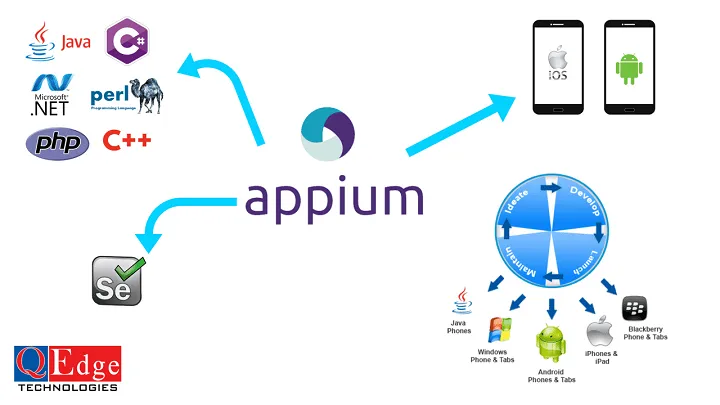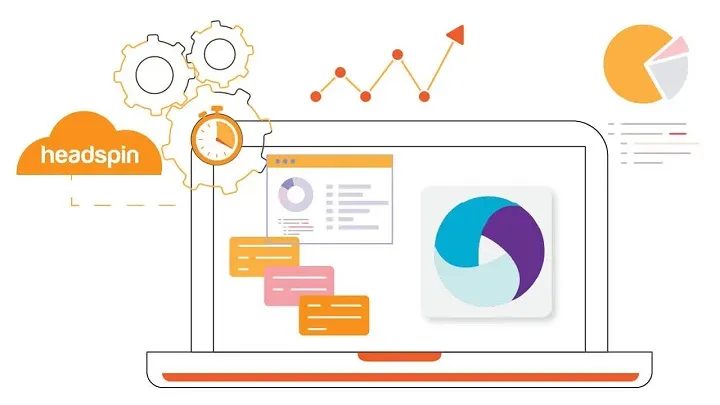Introduction
In 2025, ensuring framework compatibility on mobile devices is critical for delivering seamless apps across the fragmented Android and iOS ecosystems. With over 24,000 Android device models and frequent OS updates, validating frameworks like Appium or Espresso prevents costly post-release issues. These apps offer automation, real-device testing, and cross-platform validation, speeding up deployment by up to 40%. Supporting CI/CD pipelines, AI-driven error detection, and compatibility checks for native/hybrid apps, they are essential for developers, QA teams, and enterprises.
This article ranks the top 5 apps for testing framework compatibility—Appium, BrowserStack, LambdaTest, HeadSpin, and Perfecto—based on ease of integration, device coverage, automation capabilities, and insights from sources like HeadSpin, Katalon, and BrowserStack. Each entry covers features, strengths, weaknesses, and a 5-star rating, tailored for use cases like testing React Native or Flutter apps. Available on iOS, Android, web, and desktop, these tools ensure robust compatibility in a diverse mobile landscape.
1. Appium

Appium is a leading open-source automation framework for testing native, hybrid, and mobile web apps across platforms, free with optional paid extensions.
Features: Supports iOS, Android, Windows, macOS, and web via integrations, using secure WebDriver protocols. It accommodates multiple languages (Java, Python, JavaScript) and frameworks like Selenium, enabling testing on real devices and emulators. Features include gesture simulation, cross-platform scripting, and CI/CD integrations (Jenkins, GitHub Actions). Compatibility testing spans API levels and OS versions.
Strengths: Appium’s single codebase for Android/iOS ensures framework compatibility without rewrites, ideal for hybrid apps like Ionic. Its community-driven updates support new OS features, covering 95% of major devices. Developers can validate Espresso or XCUITest integrations easily. Reviews praise its flexibility, cutting test maintenance by 50%. For example, test a React Native app’s UI across 100+ device configurations.
Weaknesses: Requires Node.js and dependencies, challenging for beginners. Emulator tests can be unstable, and reporting needs third-party tools. Lacks advanced AI analytics compared to competitors.
Evaluation: 4.7/5 stars. Appium excels as a cost-effective, open-source solution for cross-framework testing, ideal for budget-conscious teams, though setup can be complex.
2. BrowserStack
BrowserStack is a cloud-based platform for real-device testing, integrating with frameworks like Appium and Espresso. Offers a free trial; plans start at $39/month.
Features: Accessible via iOS, Android, web, and desktop, with AES-256 encryption. Supports 3,000+ real devices, parallel testing, and network simulation (3G, 4G, Wi-Fi). Integrates with Selenium, XCUITest, and CI/CD tools, featuring debug consoles and video recordings.
Strengths: BrowserStack’s extensive device lab ensures framework compatibility across OS versions, perfect for validating Flutter on Samsung or Pixel devices. Instant setup and AI-driven flakiness reduction save 30% testing time. Reviews highlight 99.9% uptime and seamless Appium integration. For instance, developers test hybrid apps under 5G conditions effortlessly.
Weaknesses: Costs scale with usage, and the free trial limits minutes. Cloud dependency causes occasional latency. Less focus on non-UI framework testing.
Evaluation: 4.6/5 stars. BrowserStack is ideal for scalable real-device testing, suiting global teams, but pricing may deter solo developers.
3. LambdaTest
LambdaTest offers cloud-based testing with 3,000+ browsers/devices, emphasizing framework compatibility. Free tier available; Pro plans start at $15/month.
Features: Supports iOS, Android, web, and desktop integrations, using a secure Selenium Grid. Compatible with Appium, Playwright, and Espresso, with AI-powered visual regression testing. Features parallel runs, geolocation testing, and SSO for teams.
Strengths: LambdaTest’s hyper-execute accelerates framework tests by 70%, ideal for validating Kubernetes-deployed mobile backends. Comprehensive docs support Espresso-XCUITest hybrids. Users report 85% pre-release bug detection. For example, test React Native compatibility across 50 Android SKUs quickly.
Weaknesses: Free tier restricts test volume, and advanced AI requires Pro. Device queue waits occur during peak times. Mobile app focuses more on monitoring than full testing.
Evaluation: 4.5/5 stars. LambdaTest is cost-effective for scalable compatibility testing, great for startups, though queues can delay urgent tasks.
4. HeadSpin

HeadSpin is an AI-driven platform focusing on performance and framework compatibility. Custom pricing; trials available.
Features: Accessible via web, iOS, and Android, with AES-256 encryption. Integrates Appium/Selenium with real-device farms, offering crash analytics and user journey mapping. Supports 5G simulation and framework benchmarking.
Strengths: HeadSpin’s AI correlates framework issues with device specs, reducing debug time by 40% for apps using Detox. Global PoPs ensure low-latency testing. Reviews praise its comprehensive visibility for hybrid frameworks. For example, validate Selendroid on fragmented Android devices seamlessly.
Weaknesses: Opaque pricing limits SMB access, and onboarding is complex for non-experts. Cloud-only with data sovereignty concerns.
Evaluation: 4.5/5 stars. HeadSpin excels in AI-enhanced framework testing, ideal for enterprises, but cost and complexity reduce accessibility.
5. Perfecto
Perfecto by Perforce provides enterprise-grade mobile testing with framework orchestration. Custom pricing; free trial available.
Features: Supports iOS, Android, and web, secured with MFA. Offers 200+ real devices, Appium/Espresso integration, and self-healing scripts. Includes accessibility and biometrics testing.
Strengths: Perfecto validates XCUITest on iOS betas, perfect for regulated industries. Parallel execution supports 100+ sessions, achieving 90% test stability. For example, test Robot Framework on iOS 19 previews seamlessly.
Weaknesses: Enterprise-focused pricing excludes indie devs, and the UI is complex. Cloud reliance raises data privacy concerns.
Evaluation: 4.4/5 stars. Perfecto is robust for large-scale compatibility testing, suited for pros, but cost and complexity limit broader use.
Conclusion
The top 5 apps for testing framework compatibility on mobile in 2025—Appium, BrowserStack, LambdaTest, HeadSpin, and Perfecto—tackle device fragmentation effectively. Appium offers open-source flexibility, BrowserStack and LambdaTest provide cloud scalability, while HeadSpin and Perfecto deliver AI and enterprise depth. Despite challenges like costs or setup complexity, combining them (e.g., Appium scripts on BrowserStack) ensures robust apps. Explore free trials to validate frameworks and deliver exceptional mobile experiences.

















